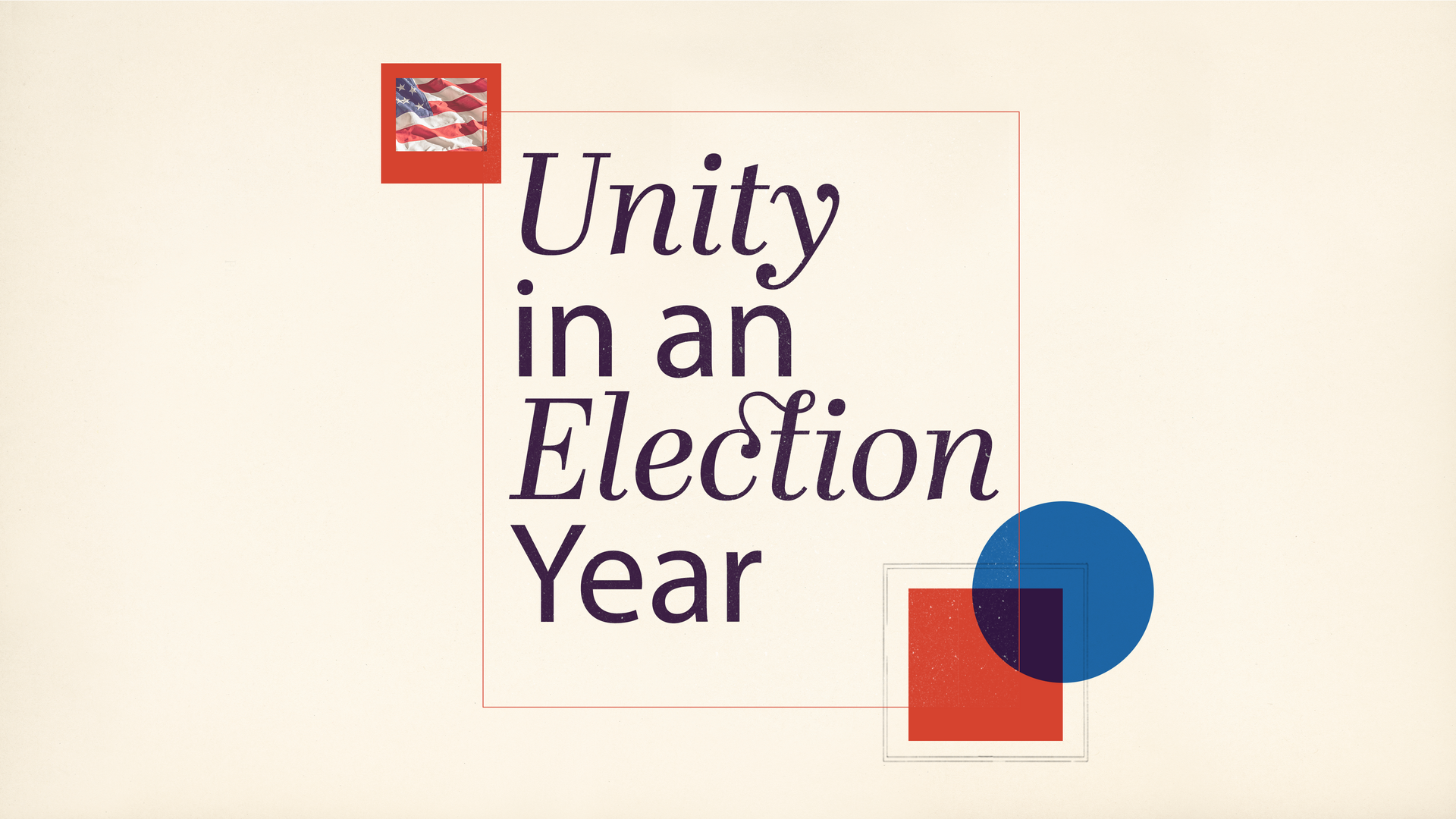Unity in an Election Year

Written by Pastor Ky Martin
What is the greatest threat to the church today? Persecution? An increasingly secular culture? Common sin struggles like lust and pride? While those threats are not insignificant, I believe that an even more looming threat in our context is quarrels over non-essential issues.
I’m not talking about foundational, gospel doctrines. But I’m also not talking about the color of the carpet. I’m talking about issues that are important, and yet non-essential. Things like: The level of endorsement for a candidate or party or candidate. What issues can (or cannot) be overlooked for the greater good? What issues or events should be publicly supported or condemned?
Differing opinions among fellow believers are often brought to the forefront during elections. The chanting, slogans, candidates, and attacks on the other side affect us in ways we often don’t even realize. We instinctively begin to judge others based on their endorsement, support, or involvement level.
As we move into such a season, let’s consider how Paul approaches disagreements among the early church in Romans 14. Here are two observations for us to consider from that text:
1. Most of their differences were greater than ours. To a first-century Jews, the Gentiles were, in a word, unclean. They ate the wrong food. They celebrated the wrong holidays. They followed the wrong rules. When Gentiles began joining the church (and quickly became the majority), it was like mixing oil and water.
How many Jews had to wrestle with watching their supposed brothers and sisters in Christ not honoring the Sabbath (Rom. 14:5), eating food that God called unclean (Acts 10), and disregarding countless other Old Testament regulations? Can you imagine trying to convince a believing Pharisee in the early church that keeping the Sabbath was now in the non-essential category? One would have expected two churches to emerge in those early years: One for Gentiles, and one for Jews.
It’s tempting to dismiss Paul’s warnings because of how important certain issues seem to us. But most of the political differences we have with fellow believers pale in comparison to the differences that Jews and Gentiles had to overcome. Paul’s warnings and encouragements to them are very applicable to us.
2. Paul was less concerned about who was “right” than he was about the unity of the church. In Romans 14, Paul tackles two massive issues: Honoring the sabbath and eating unclean food. And yet, despite how important these topics were at the time, Paul was more concerned about securing unity than settling the issue. Rather than swooping down and “taking a stand” on these issues, Paul told them to stop arguing about them and learn to live with their differences.
These issues were very important, and opinions ran hot. But the Romans needed to understand (as do we) that there are many issues that are very important, but still should not be divisive.
As we head into the presidential election, let’s be warned of the very real danger we have of “biting and devouring one another” (Gal. 5:15) over heated topics. The question is not whether or not we will have political disagreements, it’s how we will respond to them. Here are a few diagnostic questions we can ask ourselves along the way:
- Am I prone to start quarrels over non-essentials? (Romans 14:1)
- Do I despise others in the church for their differences (Romans 14:3,10)
- Do I have a judgmental attitude towards those I disagree with (Romans 14:4)
- Do I assume that church members who have different opinions than me are seeking to honor God? (Romans 14:6)
In the coming months, you will inevitably find yourself disappointed in someone else’s view, voice, or vote. When that happens, we have two options. We can choose to fixate on those differences, which will likely lead to us despising our brothers. Or we can choose to assume the best about their intentions, and “pursue what makes for peace and for mutual upbuilding”. (Rom. 14:19)
Let us choose and commit now to do the latter.





